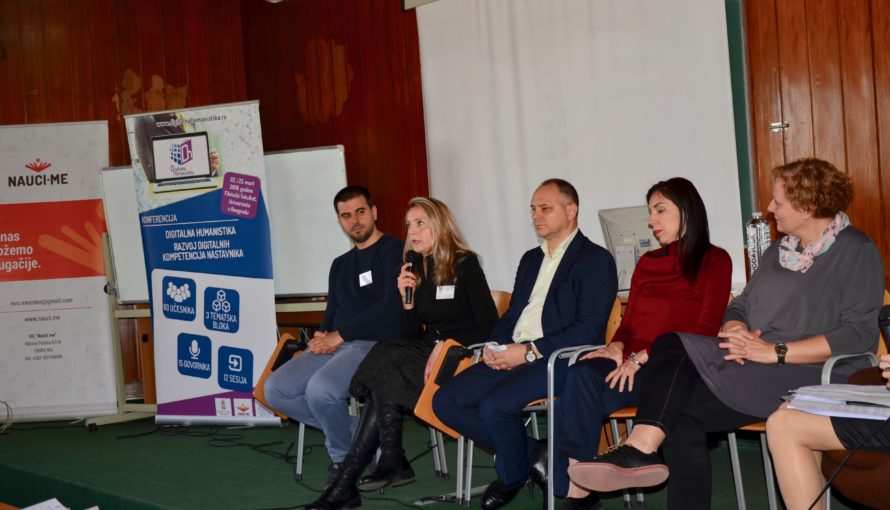
The fact that modern technologies are not exclusively reserved only for informatics, mathematicians and engineers, but that their application in the humanities field is crucial, especially during classes in schools, was one of the topics covered at the conference “Digital Humanities – Development of Digital Competencies of Teachers”, held at University of Belgrade’s Faculty of Philology. The representatives of the Ministry of Public Administration and Local Self-Government participated at the conference together with the representatives of the Ministry of Trade, Tourism and Telecommunications, the non-governmental sector, international guests, professors of the Faculty of Mathematics in Belgrade, the IT Teachers Section from Informatics Association of Serbia and the Petnica research station. The representatives of the Ministry of Public Administration and Local Self-Government were led by Dara Gravara Stojanović, responsible for the Serbia-Korea Information and Access Center, that functions under the MDULS. Through several engaging panel discussions, significant aspects of digital humanities have been addressed, primarily its application in the classroom. Also, the value of the Teacher’s Digital Competencies Framework has been emphasised. The conference also discussed topics related to the simplification of the learning process using modern tools, and a new concept in digital literacy – visualisation of data and humanistic sciences, as well as a digital view of education. MDULS representative Dara Gravara Stojanović pointed out that the Ministry of Public Administration manages the development policy of eGovernment by preparing a legislative framework for the introduction and improvement of eGovernment, as well as the daily growth of the government officials’ digital skills. – Development of the eGovernment is not only an important element of the overall reform of the public administration system but also the advancement of the information society, influenced by the development of eEducation, eCommerce, eHealth and eJudiciary. Stojanović also emphasised the importance of the Serbia-Korea IT Center, which provides the possibility of interactive learning, daily training for the improvement of digital competencies not only for the government officials but also for the citizens. – In cooperation with Serbian IT companies and South Korean partners, SKIP Center organised the free schooling program for citizens on several occasions. Elementary school pupil had the opportunity to attend courses in programming in our Centre, where even teachers have been preparing for the application of new digital methods introduced into the education system – said Stojanović. On the second day of the conference, we will talk about learning in the 21st century, new technologies as tools in the hands of qualified teachers, creating software solutions for online learning, creating digital content and the importance of developing digital interaction. In addition, the Accredited Seminar of Wikimedia Serbia will be presented as a good example of the online cooperation between teachers and students. For reference, Digital Humanities is a term that refers to the use of new technologies in socio-humanistic sciences.




